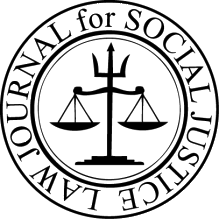By Keely Driscoll. The legal relationship between Tribes and the federal government rests on a long history of constitutional, treaty, and case law. A foundational principal of Federal Indian Law is the federal trust responsibility, under which the United States is expected to protect Tribal interests. As it stands, however, that trust has been repeatedly violated through the federal government’s use of eugenics and forced sterilization of women, particularly incarcerated women, immigrants, and women of color. Moving forward, greater oversight and reporting efforts are needed to ensure women are not forced to undergo irreversible procedures.
Book banning—it’s bad!
By Sophie Staires. Book banning is on the rise in the United States and, despite federal pushback, First Amendment arguments don’t seem to be helping. In this blog post, law student and Cherokee citizen Sophie Staires offers her firsthand account of Native American erasure in the American public school system—and a warning of what can result from hiding information and forcing people to forget their culture, their history, and their identity.
Government accountability and Clinton’s Executive Order 13175
By Morgan Oakes. Executive Order 13175, signed into law by President Clinton in 2000, aims to establish “meaningful consultation and collaboration” between the federal government and Native American tribal officials. The goal of the order is to allow greater oversight and input by Native tribes on government-approved projects that affect tribes. But advocates for government transparency and accountability believe the order doesn’t go far enough to protect tribal peoples, as it is primarily focused on land and other natural resources.
Different Perspectives: Diné bi beenahaz’áanii (Navajo Fundamental Law) and Western Law
By Shandiin Herrera. The historical relationship between the United States government and the Navajo Nation and other Native American tribal governments has ranged from rocky to outright hostile over the past 150+ years. But the Navajo Nation is resilient and has proven that its community framework—including fundamental principles of kinship among people and responsibility for land and animals—is powerful enough to create a strong cultural future for the Navajo people.
